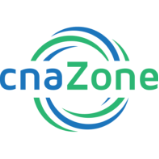Course Description
Nutrition Basics and Patient Feeding
Course Summary
The human body requires good nutrition and the proper intake of food and fluids to grow, to repair damage, to fight off infections and to function at an optimal level. Food and fluids provide the body with energy, hydration and nutrients. Guidelines for individual diets include important rules such as maintaining a balance between calories taken in and calories expended to maintain proper body weight. A healthcare professional may be called upon to assist a patient who needs assistance with eating. There are many reasons why someone might not be able to self-feed, and there are some important rules and procedures a health care professional will need to follow when feeding a patient. Patients who cannot feed themselves are at risk of aspirating food into the lungs, and the health care professional who observes recommended safety measures to prevent patient aspiration may help avoid a devastating preventable death.
Course Objectives
- Describe the processes of good nutrition
- List and describe the role of common essential vitamins and minerals
- Identify methods of planning patient feedings and preventing meal aspiration
Course Syllabus
- Nutrition - An Overview
- Minerals and Vitamins
- Dietary Recommendations
- Special Diets
- Assisting with Patient Feeding
- Aspiration Risk
Target Audience:
CNA
Credits:
1.0



